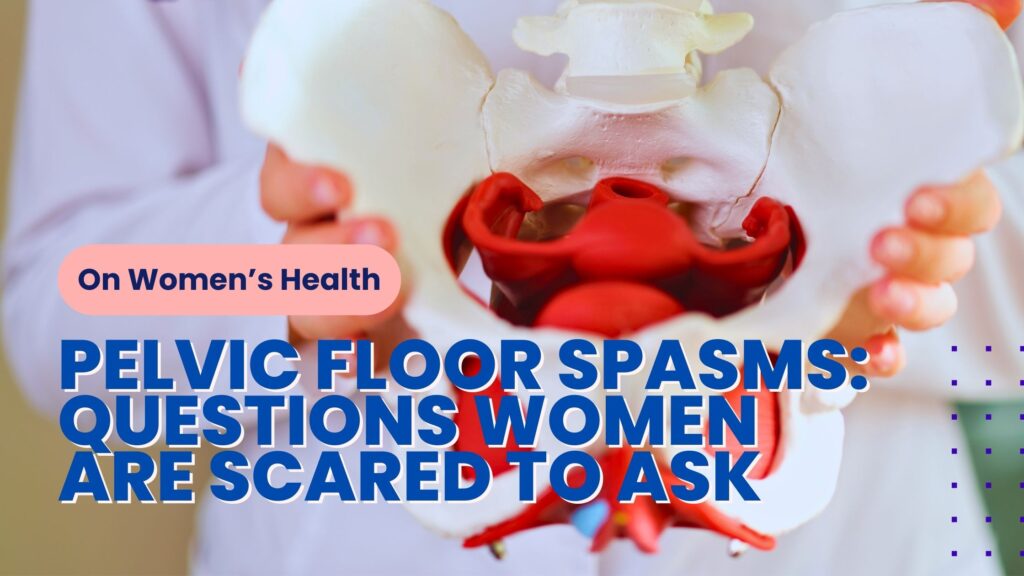Understanding Persistent Genital Arousal Disorder (PGAD): A Guide by Dr. Michael Hibner
PGAD | What You Need to Know
Persistent Genital Arousal Disorder (PGAD) is a condition where people feel ongoing genital arousal that isn’t related to sexual activity or desire. It can happen to anyone and often leads to frustration, discomfort, and emotional stress. At AZCCPP, we want to make sure you feel understood and cared for.
PGAD can feel like a constant buzzing or tingling in the genital area. This feeling might last for hours or even days and can worsen when sitting or performing certain activities. While the exact cause isn’t always clear, it could be linked to irritated nerves, hormonal imbalances, tight pelvic muscles, or even side effects from medications.
Treating PGAD is all about addressing the root causes. Here’s how we approach it:
- Physical therapy is key for relaxing tight muscles in your pelvic area.
- Medications can calm down nerve-related pain.
- Nerve blocks and injections can help relieve intense discomfort.
- Counseling offers tools to manage the emotional toll this condition can take.
- Lifestyle changes, like avoiding long periods of sitting or practicing stress relief methods, can also make a big difference.
It’s important to know that you’re not alone. PGAD is rare, but many people experience similar symptoms. By combining treatments tailored to your needs, we can help reduce your symptoms and improve your quality of life.
If you’re dealing with PGAD, don’t wait to get help. Dr. Hibner and the team at AZCCPP are here to provide the care and support you need. Reach out to us today to start your journey toward relief.
Persistent Genital Arousal Disorder (PGAD) is a complex and distressing condition that significantly impacts the quality of life for those who experience it. At the Arizona Center for Chronic Pelvic Pain (AZCCPP), Dr. Michael Hibner and our expert team are committed to providing comprehensive care and support for patients facing this challenging condition.
What is Persistent Genital Arousal Disorder (PGAD)?
PGAD is characterized by spontaneous, persistent, and often intrusive genital arousal that occurs without sexual desire or stimulation. This condition is not associated with typical feelings of pleasure and can cause physical discomfort, emotional distress, and social challenges. It is often categorized as a form of arousal disorder within the field of sexual medicine.
Individuals with PGAD may experience:
- Continuous sensations of genital arousal.
- Symptoms that persist for hours, days, or longer.
- Increased symptoms when sitting or during certain physical activities.
- Emotional impacts such as anxiety, depression, or frustration due to the condition’s intrusive nature.
What Causes PGAD?
The exact cause of PGAD remains unclear, but research suggests it may result from a combination of physical, neurological, and psychological factors, including:
- Nerve compression or irritation: Pudendal nerve entrapment or pelvic nerve dysfunction may contribute to PGAD symptoms.
- Hormonal imbalances: Fluctuations in hormones, particularly in women, can sometimes trigger symptoms.
- Medication side effects: Certain medications, particularly those affecting serotonin levels, have been linked to PGAD and post-SSRI sexual dysfunction.
- Pelvic floor dysfunction: Tightness, spasms, or other issues in the pelvic floor muscles may exacerbate symptoms.
- Stress or trauma: Psychological stress or trauma, including sexual trauma, may play a role in symptom development.
Diagnosing PGAD
At AZCCPP, Dr. Michael Hibner employs a patient-centered approach to diagnose PGAD. The diagnostic process includes:
- Comprehensive medical history: Understanding symptoms, medical conditions, and lifestyle factors.
- Physical examination: Assessing pelvic floor function and ruling out other medical conditions.
- Diagnostic imaging: MRI or ultrasound may be used to identify nerve entrapment or structural abnormalities, particularly in the spinal cord or pudendal nerve region.
- Collaboration with specialists: A multidisciplinary approach ensures a thorough evaluation and diagnosis.

Treatment Options for PGAD
Treatment for PGAD often requires a personalized and multidisciplinary approach. At AZCCPP, we focus on addressing the root causes and alleviating symptoms through:
- Physical Therapy: Specialized pelvic floor therapy can help relieve muscle tension, improve nerve function, and reduce discomfort. Physical therapy targeting the pudendal nerve and surrounding areas can significantly reduce symptoms associated with this disorder.
- Medications:
- Neuropathic pain medications: Gabapentin or pregabalin may help reduce nerve-related symptoms.
- Hormonal therapies: For cases linked to hormonal imbalances, appropriate therapies may be recommended.
- Nerve Blocks or Injections: Targeted nerve blocks can temporarily alleviate pain and identify the source of nerve irritation, such as pudendal nerve entrapment.
- Psychological Support: Therapy or counseling can address the emotional and psychological impacts of PGAD, including anxiety and depression. Mental health care is a critical component of comprehensive treatment and can help manage psychosocial factors associated with the condition.
- Minimally Invasive Procedures: For cases involving nerve entrapment or severe pelvic floor dysfunction, surgical interventions may be necessary to alleviate symptoms. Insights from renowned specialists like Scarlet Kaitlin Wallen and Goldmeier D have contributed to advancements in minimally invasive techniques.
Lifestyle Modifications and Coping Strategies
In addition to medical treatments, adopting certain lifestyle modifications can help manage PGAD symptoms:
- Stress management: Practicing mindfulness, yoga, or meditation can reduce overall tension and promote better mental health.
- Avoiding triggers: Identifying and avoiding activities or positions that exacerbate symptoms, such as prolonged sitting, specific sexual stimulation, or spontaneous orgasm triggers.
- Support groups: Connecting with others who understand PGAD can provide emotional relief and practical advice.
Related Conditions and Insights
PGAD is often associated with overlapping conditions such as pudendal neuralgia, persistent arousal, multiple orgasms, and other pelvic floor dysfunctions. Research published in journals like J Sex Med and endorsed by the international society of pelvic pain specialists highlights the importance of a multidisciplinary approach. Studies from prominent institutions such as San Diego Sexual Medicine further validate the need for comprehensive care.
Why Choose AZCCPP for PGAD Care?
Dr. Michael Hibner and the AZCCPP team are nationally recognized experts in treating chronic pelvic pain conditions, including PGAD. We offer:
- Advanced diagnostic tools and techniques.
- A compassionate, patient-focused approach.
- Personalized treatment plans tailored to your needs.
- A multidisciplinary team dedicated to your well-being. Our work is informed by the latest research from leading publications such as J Sex Med and insights from the international society of pelvic pain specialists. We collaborate with experts across the United States, including specialists in Beverly Hills and beyond.
Take the First Step Toward Relief
If you or someone you love is experiencing symptoms of PGAD, don’t hesitate to reach out for help. At AZCCPP, we understand the unique challenges of this condition and are here to provide the support and care you need to reclaim your quality of life.
Contact Us Today: Call us at (480) 599-9682 or email us at [email protected] to schedule a consultation with Dr. Michael Hibner and our team. You don’t have to face PGAD alone—help is available.


